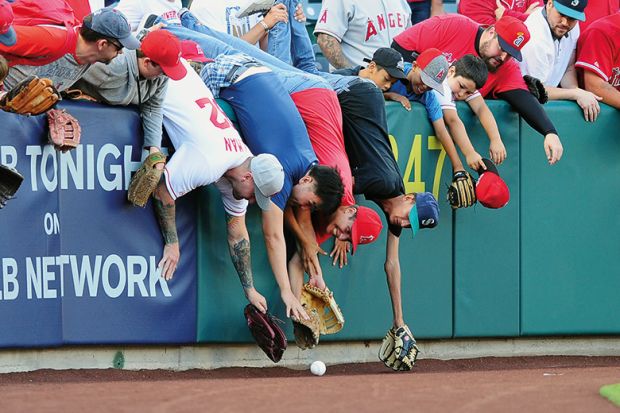US university leaders and individual researchers must “lean in” to their responsibilities as public advocates for evidence-based policymaking under the presidency of Donald Trump, according to a former White House staffer.
Cristin Dorgelo, chief of staff at the White House Office of Science and Technology Policy under president Barack Obama, told Times Higher Education that academics must put aside their concerns that engaging in policy opened them up to accusations of “partisanship”.
University presidents had a particular responsibility at a time when research funding was being threatened and climate change studies were at particular risk, she argued.
The research community have often been reluctant to think of themselves as advocates “because there is a sense that that implies partisanship from a political point of view”, said Ms Dorgelo, now an innovation consultant and a senior counsellor at Mission Partners. “It is absolutely critical in my mind that university leaders ‘lean in’ to their role for advocating for the investments that are required.”
However, such advocacy should go beyond issues directly related to higher education, Ms Dorgelo argued, highlighting the University of California system’s suing of the Trump administration over its decision to rescind protections for immigrant students without legal status.
“That university community is having a very loud political voice and we need more of that: [a] willingness to weigh in [and] to advocate for fact and evidence-based policies,” Ms Dorgelo said. “That is not a partisan action, yet culturally it is something that I have seen the academic community [being] hesitant to do.”
Ms Dorgelo said that her experience in the White House had revealed that “very few” academics had training or experience in the policymaking environment, and that this was something that needed to be addressed.
But engagement should go beyond the policy sphere and extend to addressing the fundamental reasons behind the scepticism around science and evidence among the American public that had accompanied the election of Mr Trump.
Ms Dorgelo backed the suggestion of John Holdren, Mr Obama’s chief science adviser and her former boss, that academics should “tithe” 10 per cent of their time to public engagement activities.
“That question of how we encourage researchers and academics to be more present in the civic discourse, to be more present in local watering holes and to be more engaged with local youth who have yet to decide if they are taking a path in STEM [science, technology, engineering and mathematics] fields or in the research community is a personal responsibility question that I believe all researchers should be asking themselves,” Ms Dorgelo said.
“That gets at the root of what an individual researcher could do to address some of the societal trends that have led to these types of elections.”
Register to continue
Why register?
- Registration is free and only takes a moment
- Once registered, you can read 3 articles a month
- Sign up for our newsletter
Subscribe
Or subscribe for unlimited access to:
- Unlimited access to news, views, insights & reviews
- Digital editions
- Digital access to THE’s university and college rankings analysis
Already registered or a current subscriber? Login









